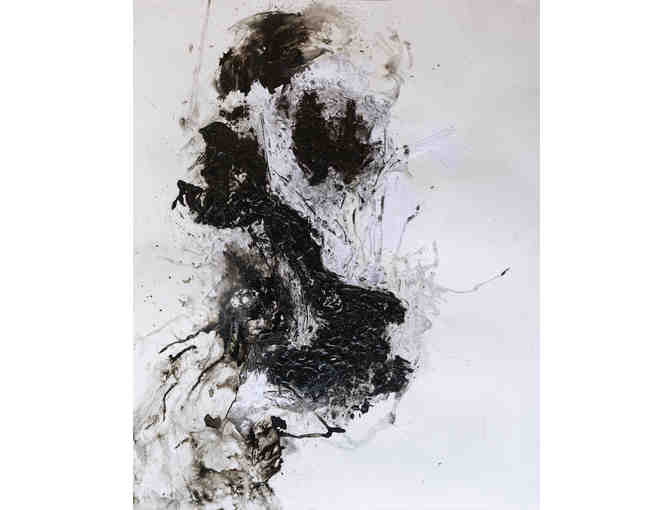The Sugarcane Worker 1 by Stanley Wany

Item Number: 199
Time Left: CLOSED
Description
The Sugarcane Worker 1, 2023, ink on handmade sugarcane and industrial paper, 20 " x 24 " / encre sur papier industriel et artisanal fait de canne à sucre, 20 po x 24 po
Arising from imperatives of social justice, my practice turns towards the study of the social structure of Western society as it is imposed on Afro-descendant individuals. A parallel is drawn between the stratification of the slave ship and its current implications. By referring to my family history, I seek therein some clues that allow for an understanding of my experience as a Black man in North American society.
Découlant d’impératifs de justice sociale, ma pratique se tourne vers l’étude de la structure sociale de la société occidentale telle qu’elle est imposée aux personnes afrodescendantes. Un parallèle est établi entre la stratification du navire négrier et sa portée actuelle. En me rapportant à mon historique familial, je cherche là quelques indices qui permettent d’appréhender mon expérience en tant qu’homme noir dans la société nord-américaine.
Special Instructions
Stanley Wany’s work draws from his multiethnic heritage. Having immigrated from the Caribbean, Wany’s family history has roots in Haiti, Trinidad, Cuba, England, France and Spain, as well as from African countries who remain unknown – the legacy of the enslavement of his ancestors. His practice explores the aesthetic potential of unconventional mediums to embody the concept of “creolization”.
Le travail de Stanley Wany s’inspire de son héritage multiethnique. Provenant des Antilles, l’histoire familiale de Wany a des racines en Haïti, à Trinidad, à Cuba, en Angleterre, en France et en Espagne, ainsi que dans des pays africains qui restent inconnus, l'héritage de la réduction de ses ancêtres en esclavage. Sa pratique explore le potentiel esthétique de médiums non conventionnels pour incarner le concept de « créolisation ».